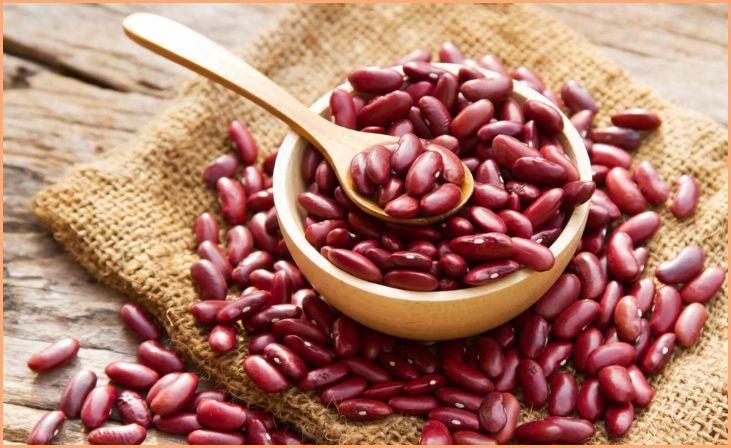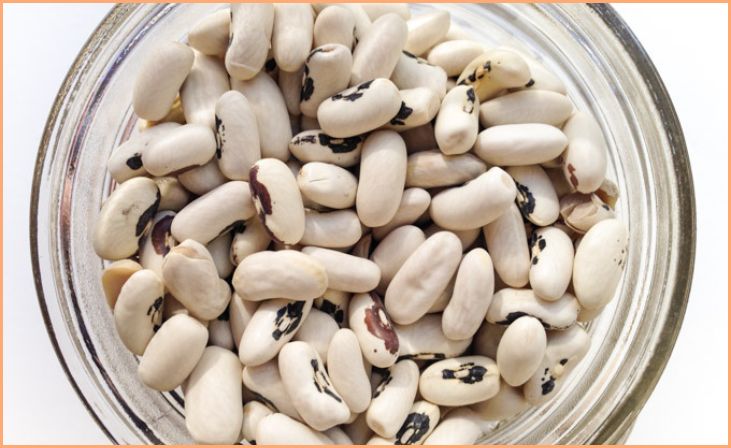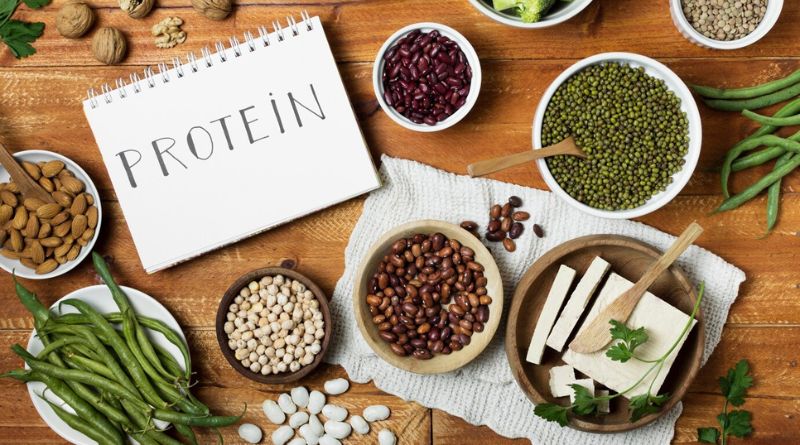Embark on a journey of nutritional goodness with our blog, “10 Best & Healthiest Legumes You Can Eat!” Legumes, a powerhouse of plant-based protein and essential nutrients, offer a myriad of health benefits. From chickpeas and lentils to black beans and peas, we delve into the diverse world of legumes, showcasing their versatility, flavors, and the numerous ways they contribute to a balanced and wholesome diet.
Whether you’re a seasoned plant-based enthusiast or simply curious about incorporating more nutritious options into your meals, join us as we explore the top 10 legumes that not only tantalize the taste buds but also support overall well-being. Get ready to discover the incredible flavors and health advantages that these legumes bring to the table!
Best & Healthiest Legumes
Explore a nutritional treasure trove with the “Best & Healthiest Legumes” — from protein-packed chickpeas to fiber-rich lentils, discover versatile legumes that elevate taste while promoting overall well-being.
1. Peanuts

Peanuts, despite their name, are not true nuts but legumes, and they stand out for their rich flavor and versatility. Packed with protein, healthy fats, and essential nutrients, peanuts contribute to heart health and provide a satisfying crunch. Whether enjoyed as a snack, in peanut butter form, or incorporated into various dishes, these legumes offer a delightful combination of taste and nutrition.
The natural oils in peanuts also contribute to their smooth and creamy texture, making them a popular choice for both savory and sweet culinary creations. From satiating hunger to supporting overall well-being, peanuts prove to be a wholesome addition to a balanced diet.
Also Read- Coffee Magic: Surprising Perks You Didn’t Know About Coffee
2. Chickpeas
Chickpeas, also known as garbanzo beans, are nutritional powerhouses celebrated for their versatility and health benefits. Packed with plant-based protein, fiber, and essential vitamins and minerals, chickpeas contribute to satiety and digestive health. Their mild, nutty flavor makes them a versatile ingredient in various dishes, from salads to stews and hummus.
Chickpeas also contain antioxidants and support blood sugar regulation, making them a valuable addition to a balanced diet. Whether roasted for a crunchy snack or blended into creamy dips, chickpeas offer a delicious way to enhance both the taste and nutritional profile of meals, making them a staple in plant-based and Mediterranean cuisines.
3. Lima Beans
Lima beans, also known as butter beans, boast a distinctive flavor and a nutritional profile that contributes to overall health. Rich in dietary fiber, protein, and essential minerals, these legumes support digestive well-being and provide a sustainable energy source. Lima beans’ creamy texture and mild taste make them a versatile addition to soups, stews, and side dishes.
The presence of folate and iron in lima beans also promotes cardiovascular health and aids in red blood cell formation. With their ability to complement a variety of culinary creations and offer a nutrient-rich boost, lima beans stand as a wholesome and satisfying choice for those seeking both flavor and nutritional benefits in their meals.
4. Green Peas
Green peas, petite yet nutritionally mighty, bring a burst of sweetness and vibrant color to various dishes. These legumes are rich in fiber, vitamins, and antioxidants, promoting digestive health and bolstering the immune system. With a delicate, slightly sweet taste, green peas are not only a delightful addition to salads, pastas, and stir-fries but also contribute to the overall nutritional content of a meal. The presence of plant-based protein makes them a valuable component in vegetarian and vegan diets.
Additionally, the versatility of green peas allows for both fresh and frozen variations, ensuring year-round accessibility to their nutritional benefits. Incorporating green peas into your diet not only enhances the flavor profile of your dishes but also adds a nutritious boost to support your well-being.
5. Kidney Beans

Kidney beans, named for their distinct shape, are a nutrient-dense legume with a rich flavor and smooth texture. Packed with protein, fiber, and essential minerals such as iron and potassium, kidney beans contribute to muscle function, blood health, and overall well-being. Their versatility shines in a variety of cuisines, starring in hearty chili, salads, and Indian curries.
The deep red color indicates the presence of antioxidants, supporting cellular health. Kidney beans’ ability to stabilize blood sugar levels and promote satiety makes them an excellent choice for those seeking a balanced diet. Whether enjoyed in classic recipes or as a protein source in vegetarian dishes, kidney beans prove to be a delicious and nutritious addition to diverse culinary creations.
6. Black Beans
Black beans, revered for their velvety texture and earthy flavor, are a nutritional powerhouse among legumes. Rich in plant-based protein, fiber, and various vitamins and minerals, black beans contribute to digestive health and satiety. Their dark color signifies high levels of antioxidants, promoting cell health and offering anti-inflammatory benefits.
Versatile in both savory and sweet dishes, black beans add depth to soups, salads, and desserts. Additionally, their low glycemic index makes them an excellent choice for blood sugar regulation. Incorporating black beans into your diet not only enhances the taste and texture of meals but also provides a substantial nutrient boost, aligning with a balanced and health-conscious approach to culinary choices.
7. Soybeans
Soybeans, a versatile legume, have earned a reputation as a nutritional powerhouse with a broad spectrum of health benefits. Boasting a complete source of protein, soybeans are a vital component for vegetarians and vegans. The presence of fiber, vitamins, and minerals contributes to heart health, bone density, and overall well-being. Soybeans are renowned for their diverse applications, including tofu, soy milk, and edamame, offering options for various culinary preferences. Rich in phytoestrogens, these legumes may also support hormonal balance.
As a sustainable and protein-packed alternative, soybeans stand at the forefront of plant-based nutrition, proving that they not only enhance the flavor and texture of dishes but also serve as a foundation for a health-conscious lifestyle.
8. Lentils
Lentils, small yet nutritionally mighty, are a staple legume celebrated for their versatility and health benefits. Packed with plant-based protein, fiber, and a range of essential nutrients, lentils contribute to digestive health, weight management, and overall well-being. Their adaptability shines in various cuisines, from hearty stews to flavorful curries. Lentils are rich in iron, supporting red blood cell formation and preventing anemia.
With different varieties such as green, brown, and red, each offering a unique taste and texture, lentils are a pantry essential for those seeking a nutritious and convenient source of plant-based protein. Incorporating lentils into your diet not only elevates the nutritional content of meals but also adds a satisfying element to a diverse range of culinary creations.
9. Pinto Beans
Pinto beans, named for their mottled appearance, stand as a nutritious and flavorful member of the legume family. Rich in protein, fiber, and essential minerals like iron and magnesium, pinto beans contribute to muscle function, bone health, and overall vitality. With a creamy texture and a slightly earthy taste, these beans shine in a variety of dishes, from Mexican cuisine staples like refried beans to hearty soups and stews.
The fiber content aids in digestion and promotes a feeling of fullness, making pinto beans a valuable addition to a balanced diet. Whether enjoyed in traditional recipes or creatively incorporated into modern dishes, pinto beans offer a delicious and nourishing option for those seeking both taste and health benefits in their meals.
10. White Beans

White beans, known for their mild flavor and creamy texture, are a nutritional powerhouse deserving of culinary attention. Laden with protein, fiber, and essential nutrients, these legumes contribute to digestive health, heart function, and overall well-being. Their neutral taste makes them a versatile ingredient, seamlessly blending into soups, salads, and casseroles. White beans are particularly high in folate, promoting cellular health and supporting prenatal care. With their ability to absorb surrounding flavors in dishes, these beans serve as a delightful canvas for culinary creativity.
Whether enjoyed in Mediterranean-inspired recipes or comfort food classics, white beans not only enhance the taste and texture of meals but also offer a substantial nutrient boost, making them a wholesome choice for a balanced and flavorful diet.
For More- Best Coffee Chocolate To Try!
Bottom Line
In the exploration of the “10 Best & Healthiest Legumes You Can Eat,” we’ve traversed a world of nutritional excellence and culinary diversity. From the protein-packed chickpeas to the creamy versatility of white beans, these legumes stand as more than just ingredients—they are nutritional powerhouses that enhance the flavor, texture, and health benefits of diverse dishes. Whether you’re a seasoned plant-based enthusiast or a culinary explorer seeking wholesome options, these legumes offer a delightful fusion of taste and nourishment. As we celebrate the rich variety and versatility within this legume lineup, let these nutritional champions become a staple in your kitchen, promoting well-being one delicious and health-conscious meal at a time.
FAQs
Legumes are rich in protein, fiber, vitamins, and minerals. They contribute to digestive health, support weight management, and provide essential nutrients, making them a healthy and versatile addition to a balanced diet.
Legumes can be added to a variety of dishes, such as soups, stews, salads, and side dishes, regardless of dietary preferences. Their versatility allows them to complement both plant-based and non-vegetarian meals.
Yes, different legumes offer unique health benefits. For example, lentils are high in iron, kidney beans support blood health, and soybeans provide complete protein. Exploring a variety of legumes ensures a diverse range of nutrients.







